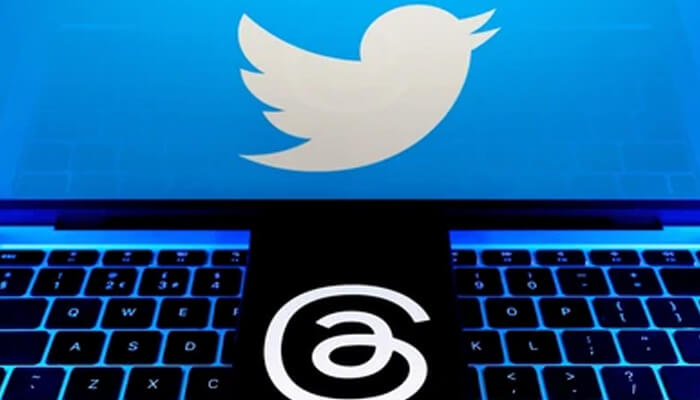In recent news, the popular social media platform Twitter has taken a firm stance against the Threads app, expressing its intention to pursue legal action. This document aims to provide an overview of the situation, highlighting the reasons behind Twitter’s decision and the potential implications for both parties involved.
Threads, developed by a third-party company, emerged as a standalone messaging app that allows users to share photos, videos, and messages with their close friends. The app gained attention for its focus on private, intimate conversations, which diverged from Twitter’s core functionality as a public platform. This distinction has sparked a conflict between Twitter and the Threads app.
The look and feel of Threads bear a striking resemblance to Twitter, as observed by James Clayton, a technology reporter for BBC News. According to Clayton, both the news feed and the reposting functionality in Threads are “incredibly familiar.” This similarity in design elements suggests that Threads draws inspiration from Twitter’s user interface and user experience. Users of Threads can expect a familiar and intuitive platform that mirrors the popular features and functionality of Twitter. Whether it’s scrolling through a news feed or sharing posts with others, the familiar look and feel of Threads will provide users with a seamless and recognizable social media experience.
Twitter has raised concerns about potential copyright infringement and unauthorized use of its platform. The company argues that Threads infringes upon its intellectual property by replicating key features, such as direct messaging, that are central to Twitter’s user experience. Moreover, Twitter believes that the Threads app may confuse users and dilute its own brand identity.
Given these concerns, Twitter has decided to take legal action against the Threads app. The social media giant intends to protect its intellectual property rights and ensure that its platform’s unique features and user experience remain exclusive to Twitter. By pursuing legal action, Twitter hopes to maintain its position as a leading social media platform and prevent unauthorized use of its brand and technology.
The legal battle between Twitter and the Threads app has significant implications for the future of social media platforms and the broader tech industry. If Twitter succeeds in its legal action, it could set a precedent for other social media platforms to protect their intellectual property and maintain control over their unique features. On the other hand, if Threads manages to defend itself, it may encourage other third-party developers to replicate key functionalities of established platforms, potentially leading to a more fragmented social media landscape.
In conclusion, Twitter’s decision to pursue legal action against the Threads app signifies its determination to protect its intellectual property and maintain its brand identity. The outcome of this legal battle will have far-reaching consequences for both Twitter and the broader tech industry. As the situation develops, it remains to be seen how this clash between two social media platforms will shape the future of digital communication.




